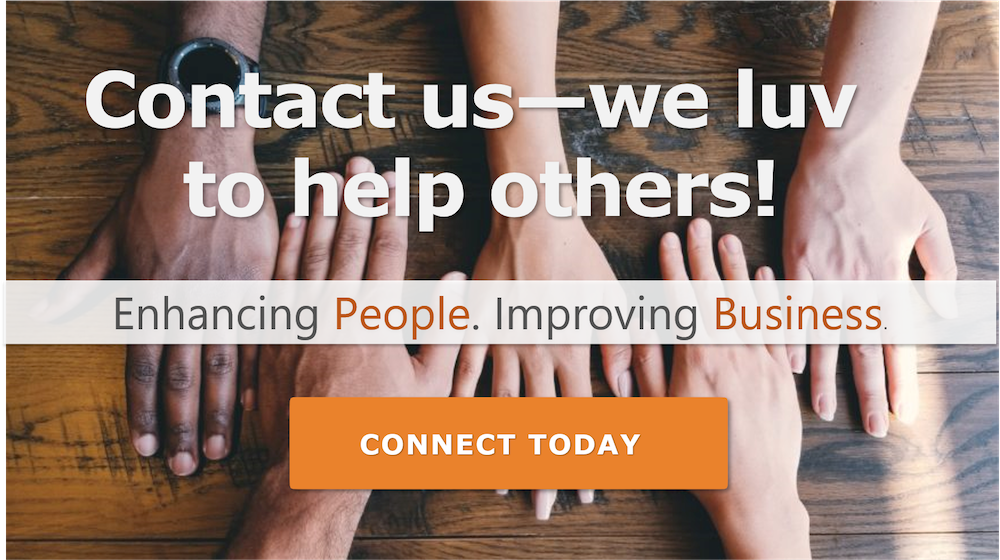Emotional Intelligence – An Essential Skill
Many people believe that emotional intelligence (EQ or EI) is a gimmick. They say emotions should be kept at bay, or better yet, dropped outside the workplace door.
Researchers worldwide disagree. They are urging workplace leaders to take human emotion seriously. The skills involved in emotional intelligence encompass human emotions’ nuances and can have practical benefits to everyone. It wouldn’t take long to notice the improved collaboration and happier, more efficient workplace environment that appears when people feel validated and valued at work.
"We are human beings every day, not just
when we leave the office.” - Rex Huppke
There’s Smart, and Then There’s Emotional Intelligence
IQ is a measure of intelligence. It is a gauge of how well someone can use information to make predictions.
People with high intelligent quotients (IQ) build rockets and argue about mathematical theory. They ponder ancient language and study complicated theories for fun. In high school, people called them nerds. In real life, they help define the world.
Emotional Intelligence (EQ or EI) is the ability to understand and manage your emotions. It means you are socially aware and can empathize with others.
People with high emotional intelligence are masters of “reading” emotions, theirs and other peoples. They are great collaborators and intuitively know how to resolve disputes and defuse conflict.
IQ and EQ are equally important but in different aspects. Where one can build a supercomputer that solves theoretical equations, the other can inspire and motivate people to come together for the greater good.
Becoming emotionally intelligent means, you learn to understand your workforce and are responsive to their needs. But to do this, you need first to understand yourself.
Stay Compliant, Educate Your Employees, Promote Teamwork with Human Effectiveness Training
Characteristics of Emotional Intelligence
Do you know anyone who seems never to let their temper get the best of them? Someone whose friends’ trust them completely? Some easy to talk to, who always listens and makes careful, informed decisions?
Those qualities indicate a person with a high EQ.
According to Daniel Goleman, a psychologist who helped define emotional intelligence, there are five key elements to it:
• Self-awareness - is knowing how you feel and how your actions can affect the people around you
• Self-regulation - means you don’t make rushed or emotional decisions, and you don’t verbally attack others. You know how to stay in control of your emotions
• Motivation - is the ability to consistently work towards your goals while having a very high standard for the quality of your work
• Empathy - means you can put yourself in someone else’s situation. It means you listen and understand how people feel and give helpful feedback when possible
• Social Skills - are critical to managing a team, a home, a group of employees. It means you can support the people around you, and you don’t criticize when people fall short; instead, you lead by example
The more a person understands and relates to others, the more effective he or she will be as a leader.
Developing and then practicing emotional intelligence will future proof the workplace. It will attract top talent and retain good employees. When employees are happy, they automatically draw people to them, which attracts your very best kind of client or customer.
First, Know Thyself
Learning to be emotionally intelligent (EI) begins with gaining insight into which skill(s) you should work on first. Some people may have great social skills but have poor self-regulation or may easily self-regulate but not empathize.
Assessing what EI skills you need to work on will help you gain clarity on where to begin. There are EI tests available online that you can take to evaluate your EI level. You can try this one or this one or this one.
Assessments will aid you in determining what type of training you should take.
EI training improves:
• Communication skills, including nonverbal interaction cues
• Group Performance
• Organizations skills - meetings and scheduling management
• Motivation and ability to accept feedback positively
• Leadership skills
Developing your emotional intelligence will enhance your mental well-being daily and help you manage stress and anxiety in your personal and professional life.
Five things you can start doing today to improve your emotional intelligence are:
1. Identify Negative Emotions
Managing your emotions is a big part of being emotionally intelligent. When you can label the emotions that cause you to feel down, you are less likely to be overwhelmed by difficulties that use your mental energy.
• When someone speaks to you harshly, don’t immediately react. Remove yourself from the situation and take time to gather your thoughts so you can respond wisely.
• Do NOT jump to conclusions or make assumptions
• Take a moment to see things from the other person’s perspective. Try to empathize.
2. Self-Evaluation
Learn to “watch” yourself. You must learn to look at your actions from outside yourself, as though you are someone else. Another term for this is getting “a bird’s eye view” of yourself. Regularly ask yourself questions that challenge your behaviors like:
• Should I have used those words?
• How would I have reacted if I were in their place?
• Am I on the right track?
• Are the people around me, friends, family, and coworkers happy with me?
3. Self-Expression
You must practice self-expression to build emotional intelligence. One cannot exist without the other.
People who can express their thoughts effectively, in a socially acceptable manner, usually score high in emotional intelligence.
Telling others how you feel and why you feel that way presents an opening for solution-focused dialogue.
• I feel _________ because when I heard you say _________ I thought _________.
This gives the other person the opportunity to understand your feelings and correct the interpretation of their actions if need be.
4. Stress Management
People with solid EI are better at handling stress than other people. This is especially true in the workplace, where stress can cause employee burnout or conflict.
Managing your stress using coping strategies is essential to building your EI.
You can try these simple stress management techniques:
• When a stressful event occurs, remove yourself and splash a bit of cold water on your face or use wet paper towels across the back of your neck. Cool conditions help reduce anxiety levels.
• Avoid caffeine and smoking during difficult times. Stimulants make things worse when you feel anxious.
• Take a work break when the stress takes a toll on your mental and emotional well-being.
• Spend time with family and time alone to regain insight so you can come back and combat stress more effectively. \
5. Practice Empathy Daily
Seeing the world through another person’s eyes is a valuable and indispensable tool to have at your disposal.
Understanding why someone behaved a certain way and relating to their thoughts is a significant milestone in emotional development.
Empathy begins at home. Try practicing random acts of kindness. Leave a good morning note on your loved one’s pillow or a thank you note for your neighbor who brought your trash cans in from the street.
Offer to drive someone to the store who usually takes a bus or have an open, heart-to-heart conversation with a family member and really listen to what they have to say.
Learning to be emotionally intelligent is not difficult, but it does take willingness and practice.
Gaining more understanding of yourself is vital for building emotional intelligence because it helps you know yourself better. It also empowers you to be supportive of others and drives you closer to solutions.
Remember, the secret to being emotionally aware lies in finding the weaknesses, turning them into strengths, and repeating the process until you master it. (Madhuleena Roy Chowdhury)
References
Chowdhury, M. R. (n.d.). Retrieved from Positive Psychology: https://positivepsychology.com/emotional-intelligence-training/
Manson, M. (n.d.). 5 Skills to Help You Develop Emotional Intelligence. Retrieved from Mark Manson: https://markmanson.net/emotional-intelligence#infuse-values
Stahl, A. (2018, May 29). 5 Ways to Develop Your Emotional Intelligencd. Retrieved from Forbes: https://www.forbes.com/sites/ashleystahl/2018/05/29/5-ways-to-develop-your-emotional-intelligence/?sh=481ab6246976
unk. (2020). What is EQ? For Success at Work. Retrieved from Alpha High IQ Society: https://www.iq-test.net/eq-test.html



